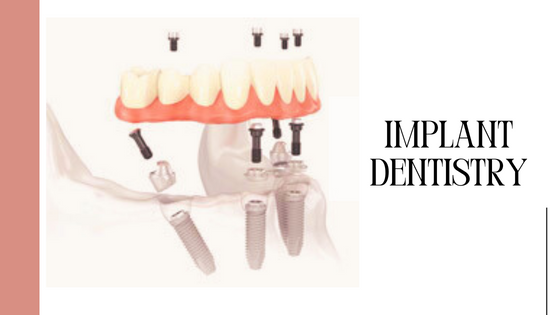Dental implants have rapidly risen to prominence in the world of oral healthcare, touted as the most effective and naturalistic replacement for missing teeth. Versatile, durable, and designed to blend seamlessly with natural teeth, dental implants are constructed from multiple components, each vital to creating a successful implant.
Introduction to Dental Implants
Dental implants are surgically inserted into the jawbone, replacing the root of a lost tooth. They serve as a firm foundation for replacement teeth that are designed to resemble – and function as – your natural teeth. Dental implants comprise three main components: the implant itself, the abutment, and the prosthesis (or crown).
1. The Implant
The implant is a screw-like post that serves as a substitute for the tooth root. This component is generally fashioned out of titanium, a biocompatible material well-regarded for its compatibility with bone and other body tissues, promoting direct bone contact and growth.
The Osseointegration Process
The osseointegration process, which can take several months, is an essential feature of successful dental implants. This process involves the implant fusing with the natural bone, creating a secure and robust foundation for the replacement tooth. Osseointegration makes dental implants unique from other tooth replacement options as the implants don’t loosen over time and don’t require adhesives to hold the new teeth in place.
2. The Abutment
The abutment, the second component of a dental implant, serves as a connector between the implant and the replacement tooth. The abutment is made from titanium, gold, or porcelain, and it’s secured onto the top of the implant post, protruding above the gum line to serve as the attachment site for the new tooth.
3. The Prosthesis (Crown)
The prosthesis, often termed a ‘crown,’ is the part of the dental implant that mimics the appearance of a natural tooth. Dental prosthetics are custom-made for each patient, designed to blend with the size, shape, and color of existing teeth to ensure a natural look. These replacement teeth are typically crafted from ceramic (porcelain) due to its strength, durability, and likeness to natural tooth enamel.
The crown can either be attached to the abutment with a screw or cemented into place. Screw-retained crowns are typically more straightforward to fix, should they be damaged or need replacement. On the other hand, cemented crowns provide a more natural appearance as there’s no screw hole, and are preferred when aesthetics are a primary concern.

Dental Implant Variations
While the three components detailed above are standard for a single-tooth dental implant, there are variations to cater to different needs:
Implant-Supported Bridges: In the case of multiple missing teeth, a patient may opt for an implant-supported bridge. These use several implants to support a bridge of prosthetic teeth as opposed to supporting a single crown.
Implant-Retained Dentures: For those missing all their teeth or requiring their remaining teeth to be extracted, implant-retained dentures serve as a secure and more stable option compared to traditional dentures. Several implants support dentures, which can either be removable or fixed.
The Influence of Advances in Dental Science
As dental science progresses, the sector has seen the advent of ‘immediate load’ dental implants, also known as same-day implants. This procedure enables the placement of a temporary tooth during the same appointment as your dental implant placement. However, candidates have to meet specific criteria, such as having sufficient natural bone.
The Importance of a Skilled Dental Team
The dental team’s skills, including the implant surgeon, periodontist, or general dentist, are integral to successfully navigating this complex multi-step process – from initial consultation to final placement of the crown.
Conclusion
Understanding the components of dental implants helps demystify the process involved in dental implantation. This understanding can mitigate anxiety around the procedure, foster informed conversations with your dental healthcare provider, and aid in making an empowered decision about your oral health. The implementation of dental implants isn’t merely about restoring the aesthetics of your smile, but equally about reinstating the function of natural teeth and maintaining long-term oral health. Always remember to follow the recommended oral healthcare regimen post-surgery, including regular check-ups, to ensure the longevity of your dental implants.















